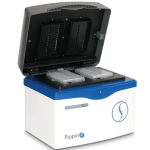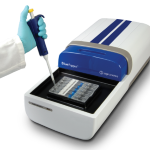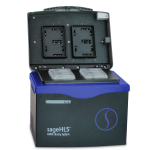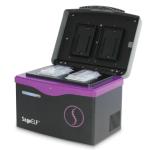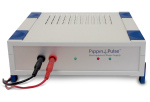Here at ASHG 2014, we’ve taken a moment to step back and look at the bigger picture for the narrative tying together the top-notch presentations, stellar posters, and frenetic exhibit hall breaks. What we’re seeing is that, several years after the wave of genome-wide association studies first hit, scientists have learned the value of sample size in the study power equation.
You can’t swing a free T shirt in the exhibit hall without hitting a scientist actively working on a massive-scale study — and by that, we mean anything including tens of thousands of people or more. (The Million Veteran Program was the topic of one talk we enjoyed.) Whether they’re analyzing exomes, whole genomes, or just targeted genomic regions, the projects are bigger than ever. It’s a trend we’re thrilled to see, and one that leaders in the field have spent years calling for.
Clearly, this is due to the precipitous drop in the cost of DNA sequencing. (And from what we’re witnessing here, it’s safe to say that cost is only going to keep dropping.) The fact that regular scientists in regular labs — not just the best-funded, world-class genome institutes — are embarking on studies like this is a real testament to the democratization of this technology. We’re proud that our own sample prep instruments play an important role in making these NGS workflows reliable, robust, and inexpensive.
Of course, all of this new data puts tremendous pressure on analysis. We’ve heard about lots of open-source tools and commercial solutions for data interpretation, but there have been some creative approaches presented as well. In one talk, Andrew Su from the Scripps Research Institute spoke about a crowdsourcing method using citizen scientists — people interested in the field but who lack the usual PhD credentials — to annotate and curate scientific literature. Su told attendees that by gathering enough annotations from non-experts, he was able to get results at least as good as if he’d hired a PhD scientist to perform the annotation.
We can’t believe ASHG is already half over. If you haven’t heard about the Sage Science products yet and how they can simplify your NGS library prep, please swing by our booth (#935). We’d love to meet you.
